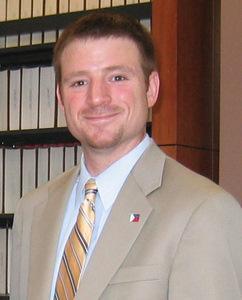In 2008, University alum Jason Theriot stopped his boat in an oil pipeline canal along the bayous of Southern Louisiana. He noticed a sign that said not to anchor or dredge. He realized oil and natural gas had changed the land he and his family had known, and he set out to learn more.
In his new book “American Energy, Imperiled Coast: Oil and Gas Development in Louisiana’s Wetlands,” Theriot tells the story of how energy development and environmental change have shaped of Southern Louisana.
“Southern Louisiana is mazed with a lace of canals built by the oil and gas industry to get access to this area,” Theriot said. “Canals have become a major feature of the landscape.”
Theriot was working toward a doctorate in energy history at the University of Houston. He was curious about the way canals were built and the topic became the subject of his dissertation, which turned into his book.
Canals were built to accommodate pipelines that stretched to the Northeast, and as energy consumption increased, so did the pipeline infrastructure. The canals, however, contribute to wetland loss through saltwater intrusion, which kills freshwater vegetation in the bayous, Theriot said.
Though pipelines and canals have helped build the area’s economy, they changed the away Southern Louisianans lived with the problem of coastal erosion.
“We’ve always had a little camp on the bayou. I’ve seen the area change dramatically,” Theriot said. “It’s a history book, but it’s also has a lot to do with people. Their voices help tell the stories.”
He wants readers of his book to understand the affect of the oil industry on Southern Louisiana and the need to prioritize restoring the coast.
Theriot said several research components of the book came from University research. When the geologist and environmental scientists came together, they presented the coastal erosion problem, Theriot said.
Given the state and the University’s importance in the book, Theriot decided to publish the book, his third, under LSU Press. The book will be released in March.
“There was really no question, I wanted to keep it in the backyard,” Theriot said.
“We’ve always had a little camp on the bayou. I’ve seen the area change dramatically.”
University Alumn discusses coastal erosion and oil industry in new book
February 27, 2014





